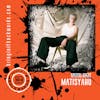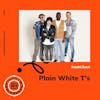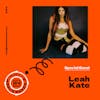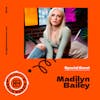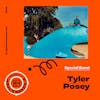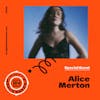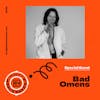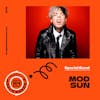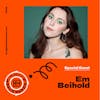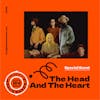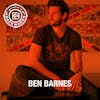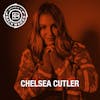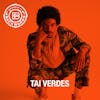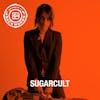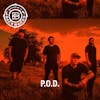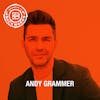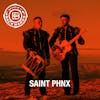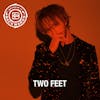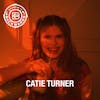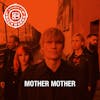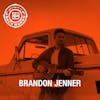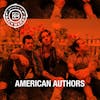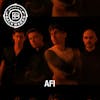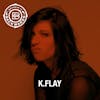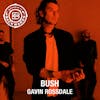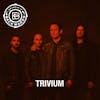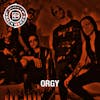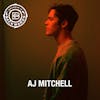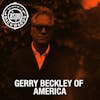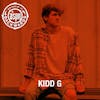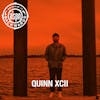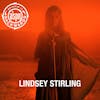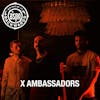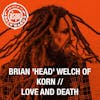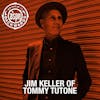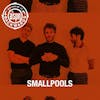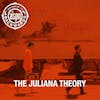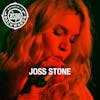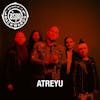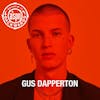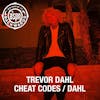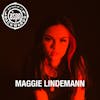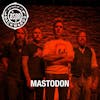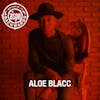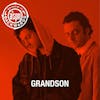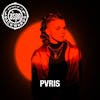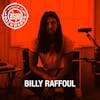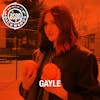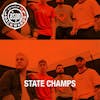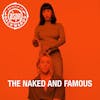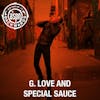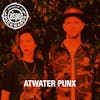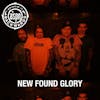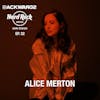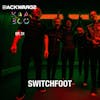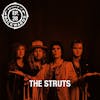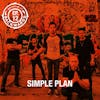Interview with The Knocks
We had the pleasure of interviewing The Knocks Zoom video!
Multi-platinum electronic luminaries The Knocks have announced released a powerfully soulful new single. Listen to “Walking On Water (Ft. Totally Enormous Extinct Dinosaurs)”
“Walking On...
We had the pleasure of interviewing The Knocks Zoom video!
Multi-platinum electronic luminaries The Knocks have announced released a powerfully soulful new single. Listen to “Walking On Water (Ft. Totally Enormous Extinct Dinosaurs)”
“Walking On Water (Ft. Totally Enormous Extinct Dinosaurs)” heralds The Knocks’ hugely anticipated third studio album, due later this year. Written in Los Angeles with GRAMMY® Award-nominated British electronic artist Totally Enormous Extinct Dinosaurs (a.k.a. Orlando Higginbottom) mere days before the first COVID lockdown in March of 2020, the song instantly stood as one of the new LP’s creative guideposts. Touching on thematic pillars of nostalgia, relationships, and emotional intimacy, “Walking On Water” expertly evinces The Knocks’ knack for bridging eras, genres, and cultures in unexpected ways, with Higginbottom’s smooth vocals interwoven with an indelible sample from Philadelphia soul legend Herb Johnson’s “Unlisted Track” (restored and released in 2001 by the Philly Archives).
We want to hear from you! Please email Tera@BringinitBackwards.com.
www.BringinitBackwards.com
#podcast #interview #bringinbackpod #TheKnocks #zoom
Listen & Subscribe to BiB
https://link.chtbl.com/BiB
Follow our podcast on Instagram and Twitter!
https://www.facebook.com/groups/bringinbackpod
We'd love to see you join our BiB Facebook Group.
1 (27s): What's going on. It is Adam. Welcome back to bring it backwards. Podcasts. We're both legendary and rising artists tell their own personal story of how they achieved stardom. On this episode, we hung out with Ben and Jay pat from the duo, the knocks over zoom video, Ben was born and raised in Vermont. J pat was born in the Bronx, went to high school in Connecticut, but we hear about both of their individual journeys and music, totally different backgrounds. As far as that goes, Ben came from more of the DJ hip hop world. He was actually in a bunch of DJ competitions like scratching and mixing and all that. And Jay pat has a very, very music driven background when it comes to his father, being a music director in an amazing organ player, he headed a bunch of churches. 1 (1m 15s): And so JPEG grew up in the church and performing at a bunch of churches. So he knows how to play a ton of different instruments. We talk about how the two met in New York ended up living together. Writing songs together started to try to work with a bunch of different artists. They had one of their songs go number one on hype machine, which at the time was unbelievable. It's basically like having the number one song on an editorial playlist on Spotify. So they talk about that all of the milestones in their career, along the way, collaborating with Mark Foster, with Ryder dye in 2018, I screw up in the middle and thought it was 2014, but you know, time's a thing, a weird thing right. 1 (1m 58s): With, with the state of the world. But I clarify that at the end or towards the end. So it's, it's all good. But anyway, we talk about Ryder dye and a lot about this new record, got a bunch of songs, one with Maul, rad, one with rivers and Royal and the serpent, another song with Mark Foster. So we find out a lot about the process behind the new Knox record. You can watch that interview with Ben and Jay pat on our Facebook page and YouTube channel at bringing it backwards. It would be so awesome if you subscribe to our channel like us on Facebook and follow us on Instagram, Twitter, and Tik TOK at bringing back pod. And if you're an Amazon shopper, a portion of your everyday purchases will help support our podcasts with just a few clicks, super easy. 1 (2m 45s): Please head over to our website, bringing it backwards.com and click on Amazon. Each time you begin your purchases, those few extra clicks will help keep our mission of providing a platform for both legendary and rising artists, tell their personal stories on how they achieve stardom so that all artists and music enthusiasts have access to meaningful and memorable advice. That'll help inspire their own musical journeys. To recap, please head over to bring in a backwards.com and click on Amazon before you make each and every purchase, because a portion of that purchase will add up in a big way to help support our mission. Thank you so much. 2 (3m 26s): I appreciate your support. If you follow and subscribe to our podcasts, wherever you listen to pod, 1 (3m 30s): Yes, we're bringing it backwards with the Knox. So basically this is about you and your journey and music, and obviously starting with the knocks and how you guys got to where you are now. And, and I love the new song and you just put out, so we'll talk about that one as well. Cool. Cool. Well, you guys started in New York. Are you born and raised in New York? 3 (3m 50s): I am not. I'm actually born in Vermont originally and I moved to New York for college. I and James was from the Bronx, but I went to high school in Connecticut. So, you know, when we both met, it was like our first times we were both getting an apartment in New York city. Like I was a freshman in college and he was also a freshman, but going to St John's we wanted to live in the city, blah, blah, blah. We ended up being roommates. Cause we had a mutual friend that went to school with me. Yeah. So that's like kind of how it all started. So that was my first time in New York. Jay pat had kind of like, you know, he was from the Bronx and like he used to come in when he was younger. Cause he was from Connecticut and shit. So I was closer, but you know, we were both like, like in the grand scheme of things is basically our, both our first times really like living in downtown New York city and kind of cut our teeth together and kind of learning the ways of getting your electricity cutoff and whatnot 1 (4m 41s): Prior to that prior to, you know, getting in New York and starting this, what was your musical upbringing? Did you or your parents into music or how'd you get into music? 3 (4m 50s): Yeah, my, my parents were huge music fans. Like not knowing, played an instrument, but my sister played drums and that got me actually into playing drums and she actually put me onto like the whole world of alternative music, kind of, she, she was one of those, you know, she was like a nineties kid, but was really into the real kind of punk and indie, hardcore punk, like all those scenes and stuff from back in the day, like, like, like the Kini kill and seven-year bitch and <em></em> and all that kind of stuff. And then also love like the Beastie boys and like DJ shadow and like kind of the cool stuff and the more electronic side of things. And I would just like, you know, as any little younger brother, you take their CDs and it's like this, the only way you can kind of find your own stuff is from your older siblings. 3 (5m 34s): So I remember taking a lot of honestly, like one of the most influential ones that I got from her shut up to Carly and she's watching was the DJ shadow CD introducing, which is like a very, it was my first time hearing an album that was like, oh, there's not songs. It's like these beats and instrumentals. And it's like kind of elements of rap music, but then also these like beautiful old samples from things. And it kind of opened my eyes to that whole producer as an artist world, you know, like especially deejaying, like I was still a DJ then I was really into hip hop DJ, like scratching and doing that whole side of things. And, and it kinda like was like, oh, you can like do this and not just like play middle school dances, like what I was doing at the time, you know, it's like, you can, like, you can like make music out of this without being, without playing a guitar or without being a singer, which I, I just like was always more interested in like the production side of things. 3 (6m 24s): So that kind of opened up those whole doors for me. And it kind of just like made me want to make kind of more weird electronic leaning music, which turned into just kind of beat making turned into hip hop and then kind of turned back to electronic music. James grew up in a family, totally different. I think he's actually jumping on now with a bunch of musicians in it. Like his parents both were in the church and teaching instrument. So he played keys and drums at a really young age. So that's why it's kind of interesting when we met, it was like, I didn't know how to play an instrument basically. Now I do, but at the time I didn't and I was like really into this whole other genre that he didn't, you know, he was like earth, wind and fire and Michael Jackson. And I was listening to like, like, you know, like no effects in punk rock. 3 (7m 6s): And then also like Bruce Springsteen and shit from my parents mixed with like Fatboy slim and all that stuff. So I was like all these genres coming together, which I think is kind of a reason why our stuff ended up sounding so good. And we didn't really butt heads on anything because I'd be like, those chords are cool. I can't play any thing at El. So you'll do the chords. And I was like, you know what I mean? It just kind of like, it was like two minds from two completely different places. So it really worked out well. 1 (7m 30s): When, when you wrote to back up a little bit, you're talking about deejaying and middle school dances, or you did the whole scratching thing. So you must've got a turntable at an early age. You've got to get the needles and actually scratch too. Like, how did you, like, how old were you when you started doing that? 3 (7m 44s): I was 13 when I got my first, like I kinda, when I learned what the deejaying was like with the turntables, everything, I think I, my, I have like a friend who had a friend from New York city, like brought literally like a catalog in and you're like, look, you know, you can order stuff online at the time. So like, you look as these, these catalogs and all this stuff was so expensive, obviously for like, my mom was about to buy me that stuff. So I obviously took my parents' turntable. Like they'll, you know, and just like took their first record and went like this. And that's slowly I learned, I like got some gear, like had a friend that had some and kind of played with it. And then I started selling weed, which funded my early DJ career public school in New Hampshire. 3 (8m 27s): It was, it was very funny. It was like, I, you know, cause I, I couldn't afford this stuff. My parents had no idea how much it costs. I mean, they'd know by now this is no secret, but they didn't know how much this stuff costs. So I'd be ordering on these catalogs and like some like $300 turntable would come in the mail and they'd be like, yeah, this was like 20 bucks. You know what I mean? And like, not totally. Yeah. It was, it was a funny get away with way more before the internet, honestly. 1 (8m 52s): What was your first turntable? Did you? I w I had a turntable growing up. It was, I tried to do that thing and I was just awful at it. And a buddy of mine would come over and use it and he got really good. I ended up really kind of going that route, but yeah. 3 (9m 4s): Did the DMC's and the whole thing, like a track was a judge when I was 13, I competed in Boston, drove like three hours and got top 10 when I was 13. I was like super into, I spent hours in my room and I wish I could honestly get some of those hours back. Cause I don't really use those skills anymore. I wish I had been keeping myself like guitars or something, but in the long run, it's like, it's, you know, it's all part of the process. But my first at that table probably is the Gemini. I think like 1 (9m 31s): I ran the gym and I was a better director. I 3 (9m 33s): Definitely belt because I couldn't afford that. And then when I got finally got 1200, I was like, oh my God, this is like, this is what they're supposed to be like. Cause the belt one, you like pull the record back in the whole thing, which I like when they were so soft and like, so like they just felt cheap, you know? 1 (9m 49s): Yeah. You'd put, you'd pull it. Yeah. You'd pull the record and it had to like catch up. Right. It'd be like, we're Hey, sorry about that. The link wasn't working for me for whatever. It's all good. Thank you so much for being here. I'm Adam, we are, we're kind of started a little bit just hearing Ben story. Basically. This podcast is about you both and how you met and got into music. So w w we'll jump over to you in just a second. Yeah, no worries. No. So Ben, you were, you were like serious into it. 1 (10m 31s): I mean, you were competing in everything like you like with the crab and all that stuff. 3 (10m 35s): I was juggling, I'd buy five copies of every record. Cause they'd get, they get worn out, you know, and I used to do it performing in my like school tile and shows and stuff. And that's like, what I wanted to do. I wanted to be like Cuba or like a track. And those dudes who were just like doing shows and scratching and all that stuff. And then it slowly turned into just like production and making beats. And that's like, what I wanted to then I was like, I kind of want it to be like DJ premiere where like I make beats and do the in scratch on the, like I put out two mix tapes as a kid that were just like me scratching on the choruses and then, but I made the beat and that'd be a rapper. And then slowly, I just kinda got more into like the idea of, of miking, the full song, you know, I learned how to like arrange a song and put it together and whatever. 3 (11m 21s): And I feel like that was just kinda like the first step into becoming like an actual producer. And slowly I started scratching less and less and got a guy like, you know, I moved to New York city and started deejaying at clubs, like my day job, just like playing at whatever open format and stuff. And that kind of opened my eyes to just even more genres of stuff and you know, more dance music, kind of that whole scene in New York with, with kind of the, the bloggy Brooklyn scene with all the cool electro stuff and all that. And that kinda got me into electronic music. I remember at a young age, I think having the daft homework album, cause my friend was from, had actually moved to my school from France and he had homework and I was like, this is crazy. 3 (12m 1s): Like, I didn't understand it. Like I remember being like, I don't, you know, I was listening to like green day at the time and I was like, what the hell is it? I was like, there's no, there's like, cause it wasn't like the DJ shadow stuff or whatever where it felt like hip hoppy. And it didn't feel like at the time you'd call everything else like techno or trans or whatever, you know, it was a year old pop shit. This just had a whole nother vibe to it. I remember just thinking around the world, I was like, I just, it's like a weird, it's a crazy thing. Cause you still put those records on like daft punk and it still feels so fresh. There's something about the way it's mixed and the way it sounds. It just like sounds like otherworldly, you know? And I just remember, I just remember hearing that as a kid and like, just like not the feeling of not being able to put your finger on something that's pretty crazy. And that was like when I listened to Def punk shit and then, you know, and then it kind of came really came back around when we got started deejaying out more. 3 (12m 44s): You're like, oh, these are actually the best songs to ever play at a club of all time. Like I didn't understand it. Listening to adopt punk record in my room as a 13 year old or whatever, or however old I was, I was like, you just like, I don't know. It like gave itself context as I got older. For sure. 1 (12m 60s): And when, when you moved to New York where you D where you deejaying in New York prior to moving there? 3 (13m 4s): Yeah, no. I just moved there and got some gigs out the gate, like met a guy who was a DJ there. And I had an internship at a recording studio and I started, I was doing a production thing like during the day, and then I'd go and play at like bar, like pretty much just like bar gigs. It was never nothing. It was no house. And he's like, really, it was like mainly rap and like, you know, pop top 40 stuff and then you'd play. And then slowly, like the kind of EDM thing happened and dance music got bigger and bigger. And then it was like, everyone wanted like fucking dance remixes of pop songs, you know, you're playing like the Katy Perry song. It's just like pumping and then slowly dance music got cooler and cooler. And I feel like that's when we got kinda into it when like stuff like the bag Raiders and cut copy and all that stuff was coming up. 3 (13m 48s): It was like really exciting for us. And I was like, this is cool. Cause it's like music and it's songs, but it's also dancy. It's not just like a two-bar loop for 10 minutes. Like a lot of people considered like house music or techno back then, I feel like, 1 (13m 59s): And you guys, were you living together at this point? Like you had not met each other and 3 (14m 4s): We lived there for years. Yeah. 1 (14m 8s): Okay. How did you get the music and you Ben was saying that you're from originally from 4 (14m 14s): Brooklyn? No, I'm from the Bronx Bronx. 1 (14m 17s): Sorry. Okay. The Bronx T talk to me about that a little bit. 4 (14m 20s): My dad is a musician in churches and he also teaches, teaches music and school school, but my mom also has five brothers and four sisters and they're all musicians I'll play Oregon. So just being around it a lot, growing up, it was kind of like the thing to do in my family. 1 (14m 45s): Oh, that's awesome. 4 (14m 46s): Yeah. 1 (14m 47s): And what was the first, so what, like, what was the first instrument you drove to? I 4 (14m 51s): Grew up playing. I mean, there was a piano in the house and I played drums and that kind of like switched over to piano just cause it was there. And then I learned guitar and bass, like years, years, years later, like after I had already moved in with them. 1 (15m 8s): Oh, okay. And were you in bands growing up or like, how did you, how'd you cut your teeth in the, 4 (15m 16s): I think a church choir. I did like jazz rock in my high school. I was a high school in Connecticut. I did like, I would play with my dad. Cause like my dad was like, he was like emptying church, like musician, like musical departments, like the entire departments of coming in and like hiring musicians and then like write songs for them and stuff like that. And then you play for different churches on Sundays and like pretty much like, like revamp their entire musical departments, you know? And I would go and I would be like just drummer for those gigs. 1 (15m 54s): Wow. So he puts you in the band that's rad. 4 (15m 57s): Yeah. And then like, my mom would help him too. It was kind of like a full family gig where my mom would be like the choir director or choir directors or whatever. And they would like to sew songs together. Like we'd be in like rehearsals every fucking day for different choirs. 1 (16m 14s): Wow. So you've really got in involved quickly. I've heard a lot of artists talk about being, you know, when you're growing up in the church and especially music in the church, you get a lot of opportunities to perform in front of people. You must be. Yeah. 4 (16m 26s): And it wasn't just like church on Sunday. It was like church on Sunday, like choir hers on Monday then like teen choir rehearsal on Tuesday then like our different churches choir rehearsal on Wednesday. And it was always like, like musicians rehearsal after acquirers. So it was like really just like always sort of like in the church, like it's like, I know it was like inside of a church, like facility. Like, 1 (16m 48s): Did you ever have an opportunity to like, you know, obviously you're doing the church thing, but were you ever able to kind of branch out and do something like on your own? Like as far as like maybe a handful of friends and stuff 4 (17m 3s): And like, and like started like, like when computers became the thing that I was like able to kind of like go and like be on a computer and like do like discover other shit. Because before then I was kinda pretty much subject to like the music my parents were playing, which was not bad. But my, my dad was also playing records from the fire in the crib stuff. And then kind of like this like earth, wind and fire has got a lot of like churchy aspects to them, but they were like just pop music. And, but it was like what was allowed. 1 (17m 35s): And 4 (17m 37s): I'm saying like, I wasn't listening to like, yeah. But then the internet came and I was like, oh, this should expire. Then I started listening to like, and like my hobbies put me up on like on like underground shit, like back in the day, like Rawkus records. This was like when I was in high school and like download that kind of shit from the internet, then I got into like biggie and all that kind of shit in New York rap like that just from like being around. But I was also at that time, still in the church, you know? So it was like disliked. Two-sided Like my parents, 3 (18m 20s): The church gets carried over. Cause I'd be like deejaying and JPL would be like out at my party. And then he'd be like, fuck, I got to get up and go play and fucking, he like, had you remember, you were like, you still 4 (18m 32s): Wait 3 (18m 32s): For gigs. Yeah. You can go play on a Sunday morning, the church of the town or some shit 4 (18m 37s): Did the church thing. I was doing that for a long, long, long time that actually came back to as I was, cause I was like not doing it for a very long for awhile. I was cause I was, had already moved out and shit and then I needed money and my dad was like, you should just be like, go play. My dad has always know some church that needs a musician. So she could just go play for this such and such a church that needs an organist. And I was kinda like, eh, like my Oregon skills, like, are I, but like they're pretty they're my, my dad is like a virtual. So, so like I know I was like, I don't want them to like expect you and get me. And he was like, no, they just need a guy to show up and like play the songs. So I did that for awhile and I mean, it's honestly really good money. You go there for like an hour, get paid a lot of money. 4 (19m 18s): But I, I mean, I couldn't sustain that. And we started like being on the road and stuff a lot and I was TJ. 1 (19m 24s): Okay. Did you go to college for music? And then how did you meet 4 (19m 28s): I then? Cause I didn't go to college. I was supposed to be in college. I got dropped out and I was using 3 (19m 36s): When I met you or you were like just, 4 (19m 39s): Yeah, I came, I oh actually. Yeah. Cause I'd met Ben actually, like when I met that, then I was like at St. John's and I was going to hang out in new these new school studios, like every now and then our boy or our boy Milo, sorry, let's go into the new school. And he was also a producer and I was going to hang out with them and then that's kinda like why I dropped out. Cause I was like doing all this other music sits here in the city and I kind of knew what I wanted to do. So I was like, I'm not going to just like be out here when really I'm trying to move into the city. So then I moved into, I made the decision to move to the city and I'm sure he told you all this, 1 (20m 21s): Well, you said that you got, he just said we were kind of gone on his backstory a little bit, but he said you guys ended up moving in together. Yeah. 4 (20m 26s): Yeah. And I had already met him, but we were kind of like communicating online, like sending each other. 3 (20m 34s): So we just want it to be, we just want it to be rapid producers. That was, 4 (20m 40s): I was really deep into the rap. 3 (20m 46s): We realize how much the rap game kind of sucked. And like that was like the moment we were also like at the tail end of like cool rap, like all the real good shit, like TeleQual and all that kind of stuff that we loved. It was just like rap was just starting to get like kind of bad and more like into the trappy kind of shit, which was not our, you know, we were like backpacker guys 4 (21m 5s): For like the locks and stuff. 3 (21m 6s): Yeah. We were trying to like keep up with the times and they were like, fuck this. And then we kind of just fell in love with, with dance music and like more pop stuff. And then we want it to be like Dr. Luke and just like produce big pop songs for people which slowly turned into us, not being able to make big pop songs, but make like interesting pop leaning music. And that turned kind of into the Naxos. 4 (21m 26s): So like, 1 (21m 28s): Would you both like right. You would come up with instrumentals and beats together, put real instruments down and then you were kind of doing the producing on the 3 (21m 38s): Yeah. And then we like signed a publishing deal. Cause we did a couple of sessions. Yeah. And like we started getting into these LA sessions and that whole thing, 4 (21m 46s): We were like trying to be like pop, pop writers. We had a phase, we had a phase where we're like, know 1 (21m 55s): What was the first, like, how did you get into LA? Like how did you, was there a song or something, a beat or something somebody found and were like, oh, Hey, like I'd love to work with you. Or was it just networking online? 3 (22m 5s): We had developed a kid kind of a, like a Stan named Samuel, who we got a record deal with Columbia. And that was like a big deal. And we went and did his alarm ended up getting dropped and none of the music really came out, but it was like kind of our like intro to the whole music industry because we have this thing that we were developing. And I was like, whoever these producers behind the whole thing and some doors with like neon gold records, which is now still a record label, actually it was the first label that put out NOx songs. And they at the time were doing like Ellie Golding and marina and the diamonds and all this like interesting indie pop stuff, like passion pit and all this shit. And we were like, oh, this is cool. And it felt more realistic than us trying to like get a Brittany Spears song. And it was just like what we liked. 3 (22m 45s): We liked the music and it was, the guys were cool. They became our friends and then they put us on tour with Ellie Golding and then the rest kind of just like, 4 (22m 51s): Yeah, well, at the time we weren't even really trying to be artists. We're still be like these producer guys, which is why, which is why we were like in LA trying to like write pop songs. And like we had to get, we had the guy Samuel, we were just, we were like in his 3 (23m 7s): Band, played in his band and shit. We weren't like, 4 (23m 10s): We weren't like the main guys, you know, like I was like singing harmonies and playing keys and shit, but it was like playing drums and had like a keyboard thing. But we were like, you know, we just producers, I think we're still like kind of, we're trying to be like the Neptune's kind of producing for other people, but not like being the people. And then finally just started like all the hottest music that we felt like we made was stuff that was like, I don't know. He would like be in the back of the studio, like fucking around instead of the main room. Like we were used to like rent out our main room. So like rappers to help pay for the rent and shit. So we had a set up in the back and we'd like, fuck around and make like ditch in the, and we were like, we should just put this stuff out. 1 (23m 49s): And is that when you guys became the knocks, when you decided to put those 4 (23m 52s): Recordings? We had already been the knots. 3 (23m 57s): Yeah. The first like Knox songs. That was what they were like, we put out. Yeah. It was like, and it was like heightened at the height machine time. So like SoundCloud got really big and like, it was cool because it was giving people opportunity. Like, you know, we just put the show on the internet with no labeling and all of a sudden it was like got number one on hype machine. When I say huge, I mean, yeah. Time, that was such a big deal. And like, oh my God. And the next thing you know, we have like, like bunch of people on SoundCloud and like all of a sudden like labels are reaching out because of fucking hype machine. You know what I mean? It was like, 4 (24m 31s): It was a weird time for the music industry because the industry wasn't like, sure, like what to do about like all this, like, you know, you kind of get big on your own in a way, the bedroom producer, if you were able to get your stuff like to the blogs, you know, 1 (24m 47s): And if you want number one, a high machine that was like, you know, getting a Spotify. Yeah. Like being on 3 (24m 54s): Yeah. At the time it was huge. It was like, we'd watch our sounds loud by thousands of plays. Every time we refresh it, like it was really, I had so many people using it. It was crazy. We all love the game you played for a while. It was just like the hype machine blog game. And that kind of really built our whole shit. 1 (25m 11s): And what, from there, like what would you say? Like the next big, like milestone moment for the, for the group was 3 (25m 18s): We had a song called dancing with the DJ, which was the first song. We still put it out independently. We were on a label yet, but that blew up like on a whole nother level where it was like international. Like it was on the radio in Australia and it was in Japan. It was like number one, electronic charts in Japan. One of those was, it was like, and it was like actually built. It was kind of bubbled like the real fashion way where DJs were playing it. And it was like, you know, like people really play Maddie on how to, in his DJ set, which was a big deal at the time. And like, it just like kind of really was an organic thing. And then that got us signed to a label, which we never signed to, which is a deal through Interscope, which that was like, okay, now we're assigning, we signed like a big fuck off record deal. 3 (26m 2s): Like, you know, money. We would never have been able to pay back, but that was like our first big chunk of money. And like, felt like, oh, like, oh my God, I'd be like, signed a record deal. Next thing you know, we're like going to LA for sessions for the knocks, not like as producers. We were like, all of a sudden we were like artists in the room with producers. You know what I mean? Which was weird, which was weird for us. And not like, I think fucked with our heads a lot where all of a sudden that are producing these room with like these pop people, trying to make the sound that we may completely organically like into something for top 40 and like radio. And like, we were just, so it was like a story where it's like, oh, here's a record label, handing you a check and we're going to take it and like expect everything's gonna be fine. And long story short, 4 (26m 42s): Really terrible. They tried to like, get us, you know, it was like that like story you hear about our band signing to the record label, the record label, like taking control and try and like turn them into like this thing that they don't want to be. You know, 3 (26m 58s): We had the sun dance with a DJ and the hook was like, this it's like a perfect, like vocal that we like was just one of those magic moments with this, like a friend of ours who went to jazz school. And then they were on some like, oh, what if we replay like songs great. But what if we replaced her with Kesha and like do this? And it was like, oh no, this is what we're in for. 4 (27m 15s): Instead it was like, the guy with the money was to do that was like making these suggestions. 3 (27m 20s): And we were in the room with all that. And it was, and it was like, so cliche, but at the end of the day, it actually was fine because we ended up putting out an EAP, which we ended up, we liked and like the label folded. So we didn't have to pay anything back. 1 (27m 33s): That's works out. Right. They 3 (27m 36s): Paid for the tour support. They paid for like some big budget videos and like kind of got us off the ground a little bit. And then we were able to just, yeah. And then the next step after that was that song classic, which is like probably one of our biggest songs. And we made that. 1 (27m 51s): I saw that you guys got a gold record for that. Yeah. It's our first graduation. 3 (27m 57s): And that was, that was a funny time because I was like, we had just got dropped from that label and we're like, fuck, is this like the end? Like, what do we do now? Blah, blah, blah. And then we made that song just like on a random trip with some friends and that opened up. And then I sent it to Derek from neon gold, who was like, had to put out our very, very first song. And he was like, had just signed a deal with Atlantic for his label. So it all ended up working out where we signed with Atlantic, but with neon gold, who are like our friends in my, we felt very safe with them. And I don't think we would've signed another major label deal if it hadn't been in with them because it was like, these are our friends that we like spent all the hard Friday nights with and shit. So I was like, and these been kind of the ANR of our whole career, which has been awesome, 4 (28m 36s): Especially. 3 (28m 38s): And I feel like we had a little bit more ball in our court, you know, we had just kinda like, I don't know. It was like, but that first deal, it was just delayed our career. 4 (28m 50s): We also left that deal with our entire albums that we had made for them pretty much. 1 (28m 55s): Wow. I mean, that's, that's like the best scenario, right? Like, 3 (28m 60s): Yeah. 1 (29m 1s): You're not being told what to do anymore. And you get to leave with the record that they paid 3 (29m 6s): Because the label had discovered their big act was maroon five. I don't know if you've heard of them. 1 (29m 12s): They have 3 (29m 12s): <em></em> they basically sold off the label and be like, oh, we just want ruined five. Like all of your other artists, like fucking, who cares? Like, you know what I mean? Like, like we're, we're going to make so much money. We don't care if we lose this, like other fucking three bands or whatever. Sure. 1 (29m 29s): Wow. Wow. And then you put out the classic Intuit 20, that was 2014 pretty quickly after that. Was that when you worked with, with functions, people on ride or die 3 (29m 41s): Pretty for a while after that years later. Yeah. Classic was even early in 2014 might have been like 2012. 1 (29m 49s): Oh, okay. Cause I want, cause I, like I said earlier, I worked on a radio station and we played that record, but I think it was like 2014 or 20. 3 (29m 56s): I think it was later than that. I think 2017 or so maybe I'm told our second, second album. Yeah. And that was like, that was definitely a big change. That was like the next step. It felt like for us having a song on old radio, which we never thought, they always said like all these major labels, always like you guys could like have a song on the radio and like the, they used to call it modern rock. I mean, I'm sure, you know, it used to be like, now they've changed it. I feel like more to alternative, but it used to always be like, you can have a song on modern rock and we'd be in the meetings like modern rock. Have you heard our music? Like how are we going to have a song on a modern rock radio? And then the foster thing happened, which was funny because like we had that demo forever. It was just a beat our buddy made. And then we had written a little top line and was like our friends singing it. 3 (30m 37s): And it was a like the little pitched up voice. And we're like, no, the only person who could sing this would be Mark Foster because he's got that like high pitched voice. And it feels like that vibe and long story short, I was in Nicaragua for new year's party. And I met this guy who ended up being like best friends with Mark Foster. And that's how we got it to him. It was like, we hit up this guy and I was like, Hey, I got this song. I'd love like mark to sing it. He knew of us. We had done a remix for them ages ago and mark, which I thought someone like Mark Foster would never cut someone in the else that someone else wrote the majority of. Cause he's like, he's a really talented song and he's a great musician. And he, when he was down and he left and he was like, we were in LA the next couple of weeks doing it. And I was like, that felt like a big like, oh shit. Like this is going to be like the, like, it just felt like the quintessential, like Knox collaboration with the perfect song, like coming from that world of like, you know, of blog stuff. 3 (31m 27s): When that's when like pumped up kicks was the biggest song in the world. And like, it was an M and M GMT were kind of running that whole world and they looked up to both of them. And then I just feel like all our fans were like, like if you could, it was always like a dream thing. Like if you could collab with someone where I was like foster, that people would make such good sense for Knox collab. It's like, they're just like indie enough and just pop enough where they sit in that in-between zone where they're not like, you know what I mean? They're not like cheesy pop, but they're not like animal collective, you know, they're like right there, right in that, like, there's like the, like the definition of indie pop and it just really worked out. And I feel like that was like all of a sudden, just like next step. 1 (32m 3s): So once you, I want you to get the song on the radio. Did that like, was that the change? Like, did that change 3 (32m 9s): Quite a bit? It did in the sense that just like, yeah, it did in a way it was more just like cool to have people like that know of us that have been fans forever, being able to get in their car in Minneapolis and hear a song on the radio and be like, I've been listening to the band for seven years and now they finally have a song in the rate. You know what I mean? Cause we'd already been around for awhile and like, like that, 4 (32m 27s): It definitely changed. I think it changed like our second album was definitely way more indie, like bandy kind of stuff. So we were kinda like, we kind of like went in that direction cause we had put right a die out and, and I think it was, it hit an indie Ray or no alt radio and like all, all comes across all reads as like bandies. So then like our, our second tour or not our second tour, but our second album tour was a way more like we had a full live band, it was mad fun. Don't get me wrong. But like, this is what it was. And then like, I was like leaning front man. And like seeing like full songs and shit like that. 3 (33m 10s): Yeah. It definitely, I think that as much as ride or die was great. It also fucked with our heads and having a song on the radio. There's a lot of, again, it's the cliche story that everyone tells, like you get a song on the radio and all of a sudden, you think you need to make songs to the radio. You know what I mean? When 4 (33m 24s): It was definitely like trying to make songs for the radio, like songs, songs, where like we come from making songs, like dance with the DJ, that's like more of like a disco house kind of a thing. Right. I mean, it's like, there's a version. 3 (33m 37s): Yeah. The thing about ride or die. It's not like we went into that song. Like I told you the way it was made it, wasn't like we sat down in a studio, like let's make a song. That's going to be organic. Just happened. So that's like, that's what always happens. Like you can't, you just can't bottle that shit. Like it happened, I hadn't gone to Nicaragua rider die wouldn't have happened. There's all these X factors of like hits songs. I feel like that just like, they just happen. It's never in the studio and they're like, let's make a hit and then you make it, it just never works on, 1 (34m 2s): Did that open the door? Cause obviously you've collaborate and worked with a ton of artists and refer a bunch of artists. Now did, did that open up that world for you guys? Or are you doing that quite a bit? 3 (34m 12s): Yeah, definitely gives us a new sense of credit a little bit. I think was something and it opened up our 4 (34m 19s): Like super dope. 3 (34m 23s): Okay. And more and more like alternative artists. I think we're open to collaborate with us. You know, like since then we've been able to work with, you know, we have a summer cold war kids and we have a song with like, you know, cannons and a lot of these kinds of like bands that probably live in the alt radio space. But like this time on this album kind of transfer where we're going, the, we use a lot of it. Like we have a song with cannons on and we have a song with cold war kids and whatnot. And, but this time I think instead of like being like, okay, we need to make it sound like alternative or whatever. We stuck to kind of our electronic space and just having them come to our world a little more, which I think is kind of what makes this album one of my favorites, because it feels like a return to form in the sense that we're sticking to our guns of that original sound. 3 (35m 12s): But it, but it also is still touching to that, to kind of the stuff that people know us for, which is that more like indie pop thing. But we didn't, I don't know. We kind of stuck to our guns a little bit more and I feel like we've just been in the game for so long that now, like we trusted our ear a little more and we need to go to the radio. Do we need to make that? Like, it was just like, this is what we're doing and this is what we want to do, which is cool. 4 (35m 34s): I think it's a good mix of both, both of our sides, like our like DJ side in our, in our like bandy side or whatever this album, this good mix of that. 1 (35m 48s): I feel like in the alternative world too, just coming from that land and that radio world, like it has shifted quite a bit. I mean, with that sound, I mean, there's not it's bands going to, to radio or aren't as like, aren't like, when you think of alternative radio, like I'm thinking like 3 (36m 7s): Early it's like machine gun Kelly. It's like, yeah, doc, it's like, 1 (36m 11s): It's so different. I think even halls, these new record was being played on all radio 3 (36m 18s): And there's full like, damn, like even that like again, that banned cannons, it's like a full like eighties pop song. I, I think there's like, you know, it's like very scent, like synth pop stuff. And like, you know, I think they played Tov low on alternative radio is like, everything is very, it's kind of blurry over there. 1 (36m 32s): Yeah. The lines are definitely getting blurred over there and now it's like, they're a stepping stone for trying to cut things into like top, top 40, right. Like portrait class animals. Right? Yeah. It's, it's an interesting time over there. 3 (36m 48s): I'm everywhere music, music. Isn't a weird place at the moment. 1 (36m 52s): Well, now that I've really looked up and my timing is so awful because I didn't realize, you know, with COVID and everything. I can't get my barriers on time. That was 2018 when we were playing your record. So not 2014, But, so I was curious where you were, when COVID happened. Were you working on a record or were you on the road or, 3 (37m 22s): And did got a house? Yeah, we had, yeah, this record that's coming out with started basically two months or three months before COVID hit. Oh wow. On those songs, like we were literally at the house that we rented in LA, like we had just written the mall rat song. We did the Muna song. We did the teed song all in this house in LA. We were having a great fucking time. We had like we're, I feel like we were just hitting our mark on all these sessions. We were like getting all these records. We were really excited about there's a new format, new formula for us of like renting a house and having a studio in the house and having artists come to us and like, it worked out really well, but literally we'd left, ended up cutting the trip short because it was like the week that they like, oh, Coachella is canceled. 3 (38m 2s): Oh, NFL shutdown, NBA shut down or whatever relish. Like we got to get home and we bounced. 4 (38m 8s): It was early. And it was like a good thing. Cause like, as soon as you're at home with a week after they like stop everything, every, everything shut down and it was like, oh shit, this is like a big, big deal. So 3 (38m 23s): Honestly the rest of the record was done. A lot of it was done during pandemic. Like just remotely, a lot of stuff going back and forth. I feel I'm really grateful that we had even had that first month because we had a lot of tracks and ideas started all in the same room. But after that, it was kind of like, it was tough because we were putting out some singles that we made during the pandemic remotely, just to kind of like keep a afloat. Everyone didn't know what to do. You're like, do we put songs out? Is it like disrespectful to put a song out right now? Is it weird? Like, is it any point? There are people listening to music right now. And then there was like, people were only listening to old music that keeps them like safe. And it was like somebody had everyone had these like different ideas of what was going on in music were like, are we ever going to play shows again? It's like this whole thing. So we were just like, all right, let's put out some songs. 3 (39m 4s): Like we both started our own side project things. I think just like keep us ourselves busy a little bit too. And like, I dunno, it was a weird time, but we ended up making this record and I think a lot of it, honestly, I, the reason I'm so proud of it is I think we had so much time to like sit on them and like, you know, like some of these songs, like the teed song was the first song we made in LA, which was, I don't know, at this point, like three years ago. And like, we only were just putting the final touches on it, like a few months, a couple months before it came out. So it's like you have all this time to sit on it and be like, how did it, how did it, like you never get that. You never get to make a record than sit on it for two years. And then be like, I mean, I guess some people do, some people take a long time, but we, we, yeah, we, we don't usually take that long. 3 (39m 45s): So like, it was nice to have this time to be like, okay, like this, how, how has this, has this song aged? You know, like, do I still, I still get as excited about it as I did when we first made it. And there were a bunch of songs that we did it and a bunch of songs that we did and whatnot. And I think having that like time to step back and like, maybe not listen to it for fucking two months and then step back with fresh ears. It gives you such a perspective and it makes you really be like, okay, this is great. Like I still get the same excitement from this now than I did when we made it, which is a cool thing. It makes me want to take that much time to make every album. Honestly, we could afford it. 1 (40m 18s): I wonder if it's a w if it was going to be a blessing and a curse in the sense that maybe you were going to sit on it too long, but it sounds like you kind of put it down and you're like, okay, I'll read this at this time. 3 (40m 27s): Right. Cause if I had just, if we had just been working on it, like for like every day, it would have been a whole nother song. We probably would have ruined half the songs 1 (40m 33s): And just like, okay. And then you change it. And then you're like, oh, what am I? 3 (40m 37s): You lost your whole, you lose the plot. But you know, I think we did a good job. It was kind of stepping back and like making sure we were working on other stuff in the, in the time being like I made a whole like lo-fi house project that was completely different from Knox stuff. And it just was nice, like have that brain to go work on a whole nother album and be like, okay, let's go back to knock stuff fresh. Now I'm like thinking about how, you know, and I like became a better producer from working on my own stuff. I feel, I dunno, it was just, it felt like weirdly beneficial to us, which is kind of feel guilty saying that, that the pandemic was beneficial. But I feel like it kind of was for us 1 (41m 9s): With a song, like walking on water, like, you know, you said, you mentioned that was one of the early ones that you started, but like getting T to do it was that somebody you already knew, like, okay, when you reach out to the artists that feature on the record or mall rider, whoever do you have them in mind? Or like, how does that, 3 (41m 26s): I thought that song, that song we actually wrote in the room with him, but at the time he was actually on some, like, he wasn't trying to feed you on anyone's and he like make a, that discloser. I mean, like, disclaimer, I mean, he's like a homie now. So it's like all good. But at the time we didn't really know him. And we were like, oh, this sucks. Like he's telling us already that he doesn't want a feature on the song. And then we, and then we wrote the song and it was like such a great song. And it's the most like teed sounding vocal of all time. And I was just like, how is it not going to be teed on this song? You know, I was like, I was like, and we were kind of like disheartened by it a little bit. Cause he was, I mean, I get it. You know, when you're a new artist, when you're an artist and you're, he's about to put out in his own new music, he didn't want to be a feature or anything. But then again, thanks to the fucking two years of sitting around when we brought it back around, he hit us up, like, man, this song rules, like I want to be on this actually. 3 (42m 11s): I'm like, oh wow. Yeah. So then we ended up keeping him on it. Thank God. And now he's great. I mean, I'm working on a song with him right now for his album and shit, like, but it was like one of those things where like, if we hadn't had to finish the record in time, as you normally would, we probably wouldn't have been able to have teat on it. 1 (42m 29s): But the other songs, for example, like, like Mo the mallrat song, 3 (42m 32s): All right. Why don't we made with her too in the room? Loved it right away. Yeah. That's what we're trying to do more versus cause it's the pitch thing like really gets old. Like it doesn't really work that well, especially like with credible artists, like some like gray, small rat or eat or cold war kids, they're not going to like take a song that's already written. Like the foster thing was kind of like, we got lucky, but a lot of times we like, we'll go work with like writers and not have an artist for a song. And then the song just sits around and never gets cut because like, no one that we like, that's like, cool enough. We'll want to take someone else's sound. They always want to do it themselves. And we always get the best shit when like Muna the song we wrote with them in the room. That's also been the benefit of like, I think having a little bit more credibility and success over the periods is that now we can like get in the room with those people 1 (43m 16s): Versus 3 (43m 18s): Versus versus having to like send them shit and be like, please write to this. Or like, do you like that? You know what I mean? Now we can get in the room and like, and we, and like, that's why LA felt so good because we got in the room with these people that we really wanted to work with. And we like got a song out of each one of them, you know? 1 (43m 32s): And you had foster that people back on the record, too. It's all about you. And was that one that you got to work directly with mark on that one? Or is it similar to ride 3 (43m 40s): Or die? We started it in the room with them right 4 (43m 44s): In New York. He having to be in New York one day, we were in the studio And then like, that kind of just happened to, we had that for awhile. Yeah. 3 (43m 55s): Okay. Yeah. You had the beat and then we had activity. That's another one where that someone else had actually written the top, the original top line too. And he cut it too, but he changed it a lot, but it was during the pan. It was full mid pandemic though. Like we, we sent it to him and we were like, Hey, remember this? And he's like, oh man, this is great. And then he cut it and he was like, just sitting around at a studio. And that was the other thing that was kind of good about the pandemic honestly, was all these people that we wanted to work with. We're all sitting at home, right. Like with studio setups in their crib. And like, have we got so many ideas from people because they're like, I have nothing else to do. Oh, the NOCs are making an album share. I'll try to write something for it. And like, usually they're always on tour or they're finishing their record or like on vacation, you know what I mean? 3 (44m 35s): Like especially the bigger artists, right? You couldn't, no one had any excuses. Everyone was, we knew you were at home. Like we know you're home now Work on this ship please. So that was kind of to our benefit as well. 1 (44m 49s): I love the EPA put out with the, with the covers you did with foster the people south side and devil's haircut. And those are great choice. 3 (45m 1s): That was like another, like pandemic, what do we do? Let's just like, do these things like, and it was, it was fun. And those are like some of my favorite records from that era. And it's like kind of scary to remake those songs, but I feel like we did a justice 1 (45m 13s): Great job. Yeah, definitely. Yeah. Yeah. Well, is it hard to choose on those or were those the three? 3 (45m 19s): It was, it was, but when Mark's voice is so specific, it's like, it kinda like cut down a lot of options, specific tone, you know, like the Beck song was such a perfect fit and like the mobi one, I don't know. It was just like those cool experience. Yeah. That's awesome. And it was like made it in like a week. Like we were just like, let's do this. And like, we hadn't done that in a while where you don't like, sit on shit. Like there's opposite of what I was just saying. It's like, we just like bang it out and we're like, this is it. Let's it felt like almost a SoundCloud days where we were like, let's just make this thing and throw it out and see what happens. You know? 1 (45m 50s): I love it. I think it's, I mean, I like the, obviously the new songs you were putting out too, but I was, I was checking that one out too recently. I'm like, ah, this is really, really rad. And it just brings me back to like, you know, as a kid hearing bittersweet symphony on some alternative radio station or 3 (46m 3s): Whatever, but all the time 1 (46m 6s): And you have a tour coming up too. 3 (46m 8s): Yeah. And the March. Right. Excited 1 (46m 11s): For that. Have you done any, a lot of shows yet or? No, 3 (46m 15s): Just been DJ. I mean, DJ, we haven't done a live show, but we just, we just started putting it together. Like we had our first kind of rehearsal or like pre pre production thing and it was it's cool. It's like, it's, it's kind of nerve wracking getting a live show together after not playing live like fucking, so I, like, I kind of felt the feeling coming, you know, even being in the room with our, with our music director and like putting the songs together and like getting the gear going, I was like, oh, I remember this. Like, this feels like another lifetime, but like, this is fun. I remember why like this, sometimes it feels, 4 (46m 46s): It feels different just cause like everything's different now, but it feels, it feels vaguely familiar. 3 (46m 52s): Yeah. I think once we're on stage and doing it, it'll like, it's like riding a bike, but it definitely, I have some weird it's like everyone, 4 (46m 59s): Everyone who I've talked to this and back in the game, like once it's been, it was weird. But then once you get on stage, it's like the same. 1 (47m 8s): That's good. I mean that that's, I can't wait to hit the record. That's out. The songs are out now are awesome. And the support you're gonna get is going to be dope as well. So that's awesome. Thanks. Yeah. And I appreciate you guys taking the time to hang out with me today. Hey, really, really appreciate it. I have one more question for both of you. I'm going to see if I can get an answer from each of you. If you have any 3 (47m 29s): Advice for aspiring artists, JPL, you go first. 4 (47m 34s): Do I have any advice for aspiring? Sure. It's not easy, but it's not supposed to be. And don't treat it like a hobby because if you treat it like a hobby, it's always going to be a hobby. So dive in, be prepared to fail and learn from your failures and consistent. 3 (48m 5s): I love it. I've actually been, yeah, I'd say, I mean, I think the best advice is don't treat it like a hobby and I think, I think you have to eat, sleep and breathe it. And like just every day and all day do it, which I think is kind of getting lost these days. I think a lot of people try to spread themselves too thin or like try to kind of find the shortcuts, you know, like there's a lot of technology out there that makes it seem like easier to make music. But I think if you do your homework, the ones that are the, really the grades and the ones that actually end up sustaining are ones that have put in their hours, whether it's an instrument or being on being a producer or whatever, a songwriter, it's just, I just think there's no like, yeah, I think that's, I think that's the best advice. 3 (48m 50s): It's not a hobby. There's no quick way. You know, I just feel like if a lot of people think there's a lot of quick successes days and maybe there is, you know, you get Pavin on Tik TOK or the internet for a second. But as, as someone who, as a band, that's I guess a band or whatever, a duo that's been around now for over 10 years and we've able to survive off this without having, you know, we don't have like an obvious top 40 hit. We don't have that song or that, that moment that everyone's like, oh, that's the knocks they blew up. It's just kinda like, 4 (49m 16s): Oh 3 (49m 18s): Yeah, we we've, we've like just kind of had this constant, you know, slow rise type thing and it, and it's, I wouldn't trade it for anything. Honestly. I think we kind of had the ideal situation, you know, I mean, obviously having a quick hit would be great at that moment, but now I feel like those are even fewer and far between. And I think the ones that really, if you really want to make a career out of this, you got to just spend hours
Featured Episodes
Here are some great episodes to start with. Or, check out episodes by genre.























